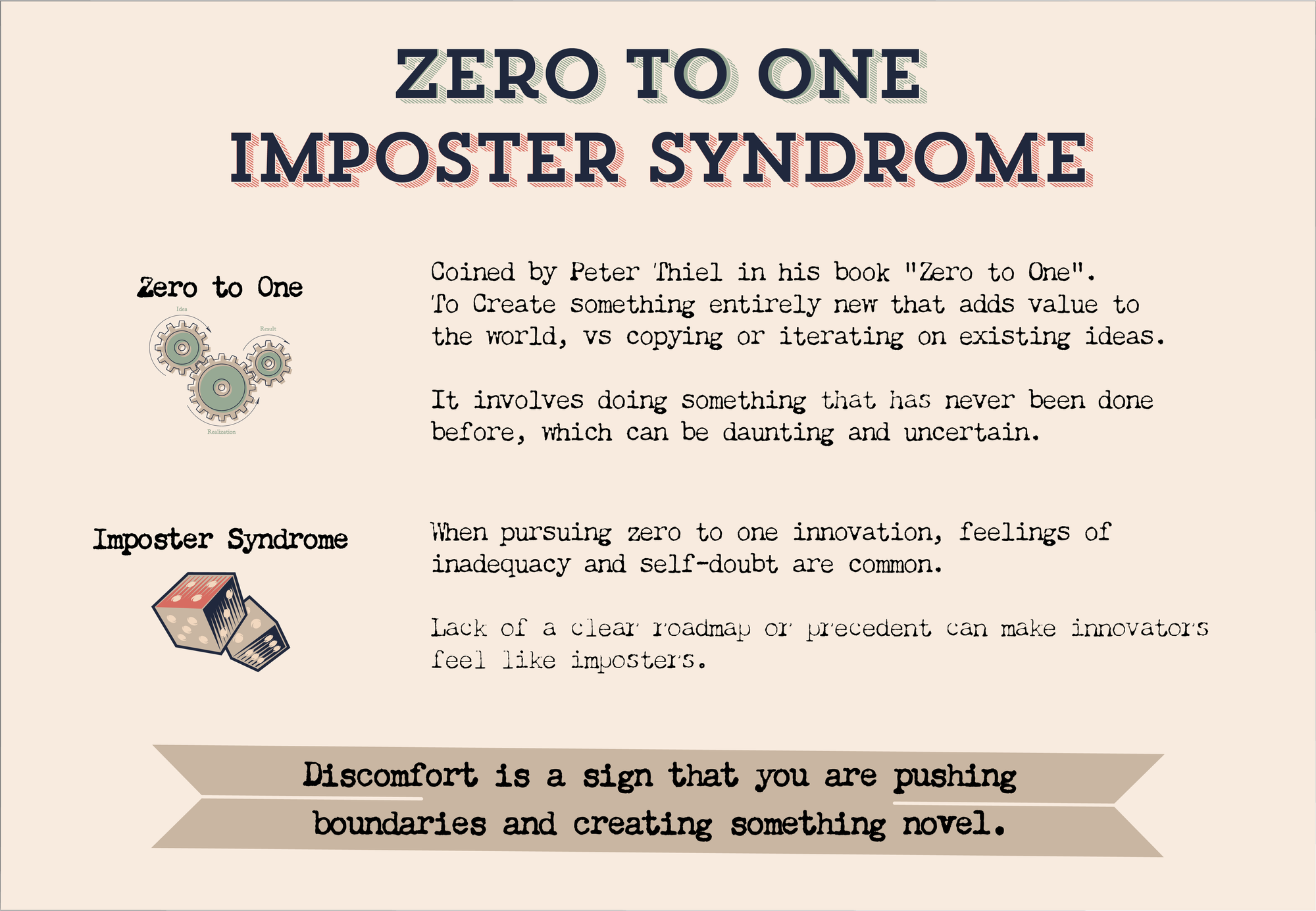The Shock of the New
Creating something truly novel and groundbreaking can feel daunting in a world that often celebrates conformity and convention. It's no wonder that so many innovators and changemakers struggle with imposter syndrome—the persistent fear of being exposed as a "fraud" despite evidence of their competence and achievements.
In his book Zero to One, entrepreneur and investor Peter Thiel emphasizes the importance of doing something that's never been done before. He argues that this leap from the familiar to the uncharted is the essence of innovation and the key to building the future.
However, venturing into the unknown is also where imposter syndrome thrives.
Feeling unqualified, unprepared, and alone is natural when forging a unique path. The absence of a clear roadmap can make the journey feel overwhelming and the destination uncertain.
You Are on the Right Track
But here's the secret: Feeling like an imposter is often a sign that you're doing something right.
As bestselling author and podcaster Tim Ferriss points out, "The reason why you feel like a fraud is because you're on the frontier. You're doing something uncommon and uncertain. Of course, it feels weird!"
Imposter syndrome is the constant companion of those who dare to do original, meaningful work. If you felt completely qualified and confident, chances are you'd be doing something conventional and unambitious. The discomfort is a natural part of the "zero to one" journey.

You Aren't Alone
It's also important to remember that imposter syndrome doesn't discriminate. Even the most accomplished and admired individuals, from Michelle Obama to Maya Angelou to countless successful founders, have spoken openly about their struggles with feeling inadequate. You're in good company.
Antidotes for Imposter Syndrome
How can you navigate the treacherous waters of imposter syndrome to reach the promised land of zero-to-one innovation?
- Befriend your imposter syndrome. Rather than trying to eliminate it, acknowledge it as a sign that you're pushing boundaries and exploring new frontiers. Embrace it as a quirky companion on your journey, not a villain to vanquish.
- Measure your success in terms of problems solved, not praise received. When you focus on the real-world impact of your work, the opinions of others (including your own self-doubt) carry less weight. Let the value you create be your north star.
- Cultivate a beginner's mind. Approach each new challenge with curiosity and openness, even if you're an expert in your field. This mindset of perpetual learning can help counteract the pressure to have all the answers.
- Experiment with micro-bravery. Rather than waiting for a big leap of faith, practice taking small, daily steps outside your comfort zone. These acts of courage, however tiny, build resilience and momentum.
- Find your imposter squad. Surround yourself with others who dare do unconventional, meaningful work. Good company makes vulnerability easier, and you can inspire others to keep going.
- Rewrite your inner narrative. When you catch yourself thinking, "I'm not qualified" or "I don't belong here," challenge those beliefs. Ask yourself, "What if the opposite were true?" and seek evidence to support a more empowering story.
- Embrace good enough. Perfectionism is the ally of imposter syndrome. Give yourself permission to create imperfect, iterative work. You can always refine and improve as you go.
Imposter syndrome is the tax you pay for daring to venture into new territory. It may never completely disappear, and that's okay. The key is to use it as fuel, not a stop sign.
Stay Different
Keep exploring, creating, and building the things that matter to you and the world. Embrace the discomfort as a sign that you're on the right track. The journey from zero to one is rarely easy, but it's always worth it.
The world needs more bold thinkers and doers like you.



